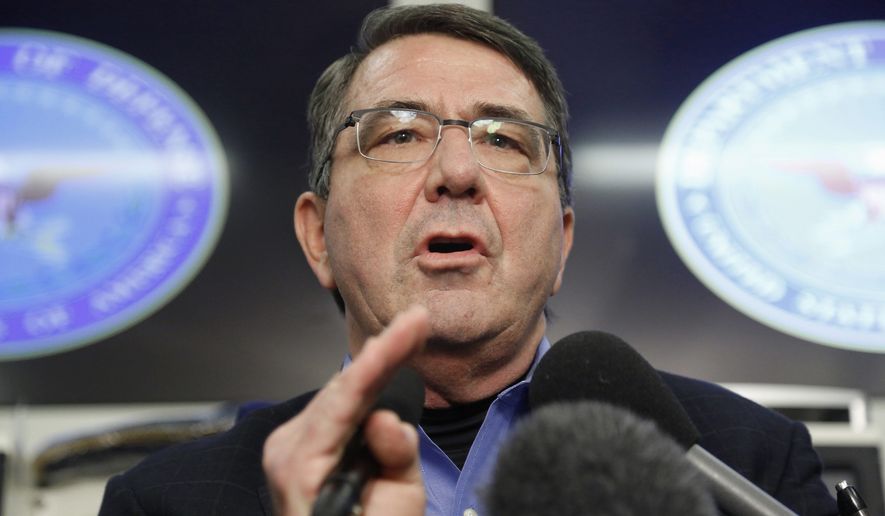Officials at the famously insular Department of Defense said Wednesday they often find it “awkward” to work with other parts of the government, but realize they’ll have to try harder if they’re going to tackle cross-agency issues such as cybersecurity.
Defense Secretary Ashton Carter told Congress it’s difficult to cut through the bureaucracy and work with other agencies.
“This is a whole-of-government thing, which is always awkward,” Mr. Carter told the House Appropriations Subcommittee on Defense.
Congress said he’ll have to find a way.
Rep. Nita M. Lowey, New York Democrat, asked Mr. Carter specifically about $5.5 billion President Obama proposed spending in his budget on cybersecurity, wondering whether the Defense Department is asking outsiders such as Apple or Yahoo to help.
Mr. Carter said the Defense Department will probably have to recruit talent from the Silicon Valley community in addition to training department employees in cyberdefense.
The threat of a cybersecurity attack became front-page news late last year when Sony’s systems were hacked by North Korea as retaliation for releasing “The Interview,” a movie that depicts the murder of North Korean leader Kim Jong-un. Other public hacks followed, including a group sympathetic to the Islamic State hacking into U.S. Central Command’s official Twitter account and posting official documents, though none contained sensitive information.
Chairman of the Joint Chiefs Gen. Martin E. Dempsey warned that America’s enemies are “rapidly leveling the playing field” when it comes to cyberwarfare, he said at a Senate Armed Services Committee hearing on Tuesday.
Mr. Carter said since the government only owns about 20 percent of the cyberinfrastructure, the Pentagon will have to work with private companies. But he said a big part will be coordinating with other federal agencies.
“I believe strongly that we have to work with the FBI, the intelligence community, the Department of Homeland Security and with the private sector, because the private sector owns and operates a lot of the private networks we operate on,” he said. “They’re the source of a lot of the technology we use, and we need to be open to the information technology industry so [that] we’re using the best of what is there.”
Mr. Carter also responded to criticism that the Defense Department was not working with the Department of Veterans Affairs on sharing electronic health records, saying that he wants to make it happen under his watch as the new secretary.
“I completely share your frustration with this,” he said. “The way I think about it is [as] a soldier, sailor, airman and Marine, there’s only one soldier, but there are two cabinet departments. They shouldn’t have to worry about that.”
Rep. Harold Rogers, Kentucky Republican, however, said he’s heard the same promise from previous defense secretaries, and urged Mr. Carter to actually make progress on something that is seemingly simple to accomplish in the private sector, especially after Congress has given the department about $2 billion to fix the problem.
“I’ve heard that for eight years now from different secretaries,” he said. “And nothing happens. We’ve poured money into this.”
Mr. Rogers said one veteran who had lost an eye in battle went to a VA for care when the other eye started bothering him. Because the VA doctors didn’t have access to his active-duty medical records, they were unable to operate, and the vet lost sight in his second eye.
Mr. Carter assured the congressman that the two systems could work together better.
“We can make them interoperable — this is something that’s done every day in society,” he said.
• Jacqueline Klimas can be reached at jklimas@washingtontimes.com.




Please read our comment policy before commenting.